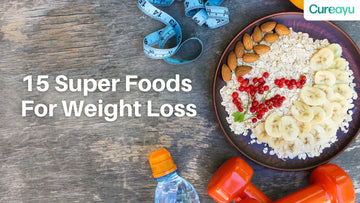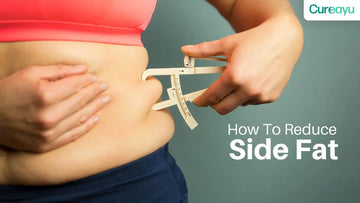Starting a liquid diet for weight loss can be both an exciting and challenging endeavor. This diet approach primarily involves consuming liquids or foods that become liquid at room temperature, making it a popular short-term strategy for rapid weight loss. To achieve the best results safely, it's important to understand the different types of liquid diets, their benefits, and the best practices for following them. From clear liquid diets to full liquid diets and meal replacement shakes, each option caters to specific nutritional needs and goals. While liquid diets for weight loss can deliver significant results, they should be followed with caution and ideally under medical supervision. This ensures all nutritional requirements are met and potential health risks are avoided. Additionally, planning a gradual transition back to solid foods is crucial for maintaining weight loss and overall health in the long term.
Also Read: Is Fasting Good For Health: An In-Depth Analysis
What Is a Liquid Diet
A liquid diet involves a dietary regimen where the intake is restricted to liquids or foods that liquefy at room temperature. Common components include clear liquids like water, broth, and herbal teas, as well as liquid meal replacements and smoothies. While a liquid diet for weight loss is popular for quick results, it’s also used for medical purposes, such as pre- or post-surgery preparation. The primary goal of this diet is to limit solid food intake, which reduces overall calorie consumption, making it effective for rapid weight loss. This method can be especially useful for those needing to lose weight quickly or preparing for medical procedures that require a clear digestive tract. Additionally, healthiest liquid diets are sometimes recommended for individuals with certain health conditions that make it difficult to digest solid foods, such as after specific surgeries or during gastrointestinal flare-ups.
Types of Liquid Diet
Clear Liquid Diet
A clear liquid diet includes transparent liquids that are easily digestible and leave no residue in the gastrointestinal tract. Examples include water, broth, clear juices like apple or cranberry juice, clear gelatin, and tea or coffee without milk or cream. This type of diet is often prescribed before medical tests or procedures to ensure a clear view of the digestive tract.
Full Liquid Diet
A full liquid diet includes all items from the clear liquid diet but adds more nutritious liquids like milk, milkshakes, smoothies, and strained soups. This type of diet is generally used as a transition between a clear liquid diet and solid foods, providing more calories and nutrients while still being easy to digest.
Modified Liquid Diet:
The modified liquid diet allows for smooth consistency foods, such as pureed vegetables and fruits, yogurt, and cream soups. This diet is often used to gradually reintroduce solid foods after surgery or illness, serving as a bridge between a liquid-only diet and a regular diet.
Also Read: How To Lose Weight Without Exercise: Proven Tips for a Healthier You
Liquid Diet Benefits
Rapid Weight Loss:
Liquid diet weight loss can lead to quick results due to significantly reduced calorie intake. By consuming fewer calories than the body requires for maintenance, weight loss is achieved. This can be particularly beneficial for those needing to lose weight rapidly for medical reasons or personal goals.
Short-Term Convenience:
Liquid diets for weight loss simplify meal planning and preparation, making them convenient for busy individuals or those who do not enjoy cooking. Preparing liquids like smoothies, broths, and shakes can save time and reduce the complexity of meal choices.
Improved Digestion:
Liquid diets are easier on the digestive system and may offer relief for certain gastrointestinal conditions. Since liquids require less digestive effort, they can be particularly helpful for individuals with digestive disorders or those recovering from surgery.
Best Liquid Diet for Weight Loss
Vegetable Broth:
Low in calories and rich in nutrients, vegetable broth can be sipped throughout the day. It provides hydration and essential vitamins and minerals while keeping calorie intake minimal, making it an excellent choice for liquid diet weight loss.
Green Smoothies:
Green smoothies are packed with vitamins, minerals, and fiber, helping you feel full and supporting detoxification. By including ingredients like spinach, kale, and other leafy greens, as well as fruits like apples and bananas, these smoothies are both nutritious and satisfying, making them part of the healthiest liquid diet for weight loss.
Protein Shakes:
Protein shakes are crucial for maintaining muscle mass while reducing fat, especially when combined with exercise. They supply the necessary protein to support muscle repair and growth, which is vital during weight loss to ensure that the weight lost is primarily fat rather than muscle.
Also Read: Slim Down Safely: How To Reduce Belly Fat\
When to Take a Liquid Diet
Starting a liquid diet for weight loss should be done thoughtfully and ideally under the guidance of a healthcare professional. These diets are typically used for short periods and in specific situations, such as:
- Pre-surgery Preparation: Before certain surgeries, a liquid diet can help ensure the digestive tract is clear.
- Post-surgery Recovery: After surgery, particularly gastrointestinal surgery, a liquid diet can aid in the healing process by reducing the strain on the digestive system.
- Medical Conditions: Conditions like Crohn's disease or severe gastroenteritis might necessitate a temporary liquid diet to allow the digestive system to rest.
- Quick Weight Loss: For individuals needing rapid weight loss, a liquid diet can be an effective short-term solution.
Conclusion
In conclusion, a liquid diet for weight loss can be an effective tool if done correctly and for a short duration. It offers quick results and may provide other health benefits, such as improved digestion. However, it's important to remember that liquid diets are not suitable for long-term weight management. Transitioning back to solid foods should be done gradually to maintain weight loss. Always consult with a healthcare provider or nutritionist to ensure that a liquid diet is safe and appropriate for your individual needs. With proper guidance, you can maximize the benefits of a liquid diet for weight loss while minimizing potential risks, leading to a healthier and more sustainable weight loss journey.












